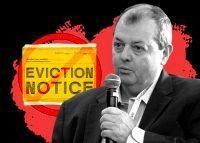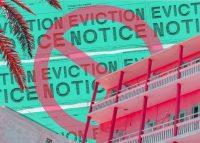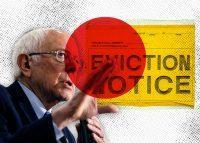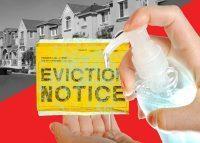With industries like lodging, retail and beyond experiencing mass layoffs, millions of Americans face the prospect of no longer being able to afford rent.
And while local, state and federal authorities have introduced eviction moratoriums across the country in response to the coronavirus crisis, where does that leave landlords with mortgages on their properties?
Property owners of “low- to moderate-income” multifamily housing will feel the financial pain first, said Roy Chun, a managing director with Kroll Bond Rating Agency. “Because those tenants are more likely to be living paycheck-to-paycheck in the service sector, and they’re going to have a hard time during a period of economic disruption.”
Chun noted that loan servicers have been receiving an increased volume of calls this month than in years past, as CMBS borrowers across industries begin to worry about their debt obligations. His team will be paying close attention to the beginning of next month, when April’s rent and debt service payments come due.
Larger landlords may find it easier to weather the financial uncertainty.
“Smaller mom-and-pop borrowers with 10 or 20 units may have a harder time just because of liquidity issues, unlike a big borrower who has credit lines they can draw upon,” Chun said.
One solution is to introduce protections for mortgagors as well. President Trump announced on Wednesday that the Department of Housing and Urban Development will suspend all of its foreclosures and evictions through April in response to the pandemic, and New York state will suspend mortgage payments for a 90-day period, Gov. Andrew Cuomo said on Thursday.
In a typical down real estate market, there is a standard “daisy-chain, domino-effect reaction,” said Jeff Friedman of law firm Hall Estill’s real estate group in statement. “Apartment renters lose their jobs or take significant pay cuts and can no longer afford to pay their rent; owners collect less rent and cannot make their debt service payments to their lenders; and lenders are not collecting enough on the debt service, with their loans now on distressed real estate assets.”
“Evictions and foreclosures follow, with distressed assets available to vulture buyers,” Friedman said in the statement, commending HUD’s move. He added that actions now taken by government agencies are helping slow down this chain reaction.
In California, where dozens of local governments have introduced prohibitions on evictions during the emergency, the landlords’ trade organization is pushing to make sure its members’ interests are protected.
The California Apartment Association said it “will work diligently to ensure that local governments that pursue such moratoria adopt reasonable measures for both rental property owners and renters and that their policies are consistent with the parameters in the executive order,” according to a spokesperson. The group noted that Gov. Gavin Newsom’s executive order this week allowing local jurisdictions to halt evictions and foreclosures also requires that local ordinances should specify “if a tenant cannot pay the rent because of COVID-19, that tenant’s rental payment is deferred for a reasonable period but not waived.”
The spokesperson added that CAA urged rental property owners and managers “to act with compassion in dealing with residents who face coronavirus-related hardships in all locations.”
Meanwhile, unless the federal government determines otherwise, it will be up to private commercial real estate lenders to decide how to handle borrowers who fall behind on debt payments.
“Lenders probably don’t want the headline risk of foreclosing on something with everything that’s going on right now, without giving any kind of relief, so I’m sure lenders will be conscious of that,” Kroll’s Chun said. “But they know the market, they know the property, and they’ll make a determination based on that.”
Read more of our coverage on housing policy amid the global health crisis









